Jorge Coutinho
Birth : 1934-09-06, Rio de Janeiro, Rio de Janeiro, Brazil
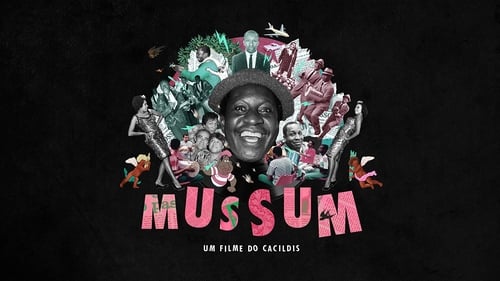
Ele mesmo
The trajectory of musician and comedian Mussum as vocalist of the group "Os Originais do Samba" and later in cinema and TV as a member of "Os Trapalhões", a group that revolutionized the way of making humor on Brazilian television.
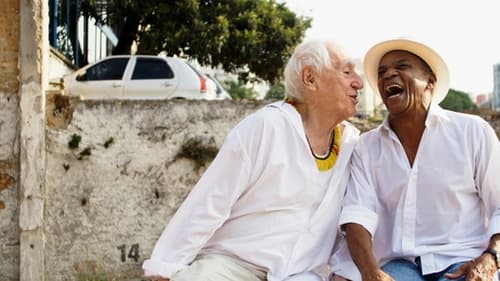
Self
This documentary investigates the aesthetic, political and existential trajectory of emblematic Black Brazilian actor Antônio Pitanga. He career spans over five decades, and he has worked with iconic Brazilian filmmakers Glauber Rocha, Cacá Diegues and Walter Lima Jr. He was a prominent figurehead and outspoken activist during the Brazilian dictatorship, a period of unrest in Brazilian cinema. Pitanga deep dives into the world of Antônio and the history of Brazil. The documentary was directed by his daughter Camila Pitanga, one of widely recognised faces in Brazilian television and cinema right now. The film is also a poem, and a tender ode to fatherhood.

Desembargador Anastácio
Four candidates for a federal judge position embark on a madcap, no-holds-barred race to outdo one another, each committing his own brand of mayhem.

The old servant and chronicler Dom Sabas tells how his desolate South American town is the scene of a ruthless power struggle. The landowning Assis family, reduced to a widow and son, tries to hold out against the young, despotic mayor. No less effective then actions are anonymous rumors and accusations, which often stir the inhabitants' moves.

Zé de Peixoto

Charuto
Rich and spoiled kid, frustrated for not being chosen to join the soccer lessons his idol Zico was going to give, asks his father to clone the player. But a small girl smells something fishy going on and asks her friends to help save the Brazilian soccer star.
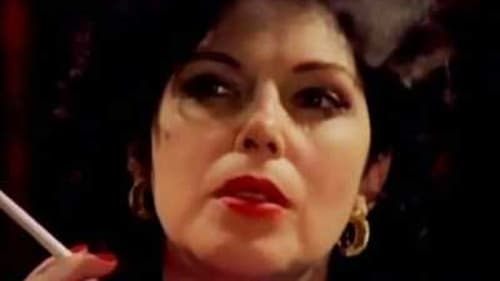
A young rock singer meets his childhood heroine, a famous singer who is now wallowing in alcohol and sex.

A rock singer goes to Brazil to shoot a video, but winds up getting kidnapped and enduring a number of seemingly bizarre and hilarious events.

Salé
Quilombo dos Palmares was a real-life democratic society, created in Brazil in the 17th century. This incredibly elaborate (and surprisingly little-known) film traces the origins of Quilombo, which began as a community of freed slaves. The colony becomes a safe harbor for other outcasts of the world, including Indians and Jews. Ganga Zumba (Toni Tornado) becomes president of Quilombo, the first freely elected leader in the Western Hemisphere. Naturally, the ruling Portuguese want to subjugate Zumba and his followers, but the Quilombians are ready for their would-be oppressors. The end of this Brave New World is not pleasant, but the followers of Zumba and his ideals take to the hills, where they honor his memory to this day. Writer/director Carlos Diegues takes every available opportunity to compare the rise and fall of Quilombo with the state of affairs in modern-day Brazil.

Kimano
Balogun's most political film is a confrontation with the African wars of liberation. Based on Carcase for Hounds, Meja Mwangi's novel about the Mau-Mau uprising, it is set in an unnamed country and thus offers the vision of a pan-African struggle for freedom and against colonial oppression. The central figures in the straightforwardly and powerfully told story are the guerrilla leader Haraka and his adversary, the English colonial official Kingsley. In the end, the film becomes a homage to the freedom fighters from all over Africa: the final images show Patrice Lumumba, Steve Biko, Nelson Mandela and Amílcar Cabral, among others.

Delegado
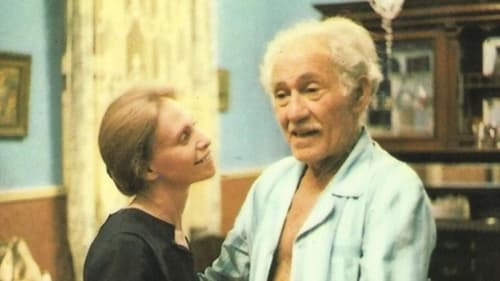
70-year-old widower living in a poor Rio de Janeiro suburb falls in love again when he finds a woman of approximately the same age.

This adaptation of a classic Brazilian novel focuses on the relations of charismatic characters within a tenement.

A Deusa Negra is a love story that spans two centuries. In 18th century Yorubaland, Prince Oluyole is taken prisoner in the course of internecine warfare fanned by overseas slave traders. He is sold into slavery in Brazil. In present day Nigeria, at his father's deathbed, the young Babatunde promises to go to Brazil and search for traces of their once-enslaved ancestors. Beginning with a Candomblé ritual, his journey takes him ever deeper into this culture and, in a dream-like sequence, affords him a deeper understanding of his ancestors' suffering and powers of resistance. Balogun effortlessly links present with past, real with magical worlds and discourse with trance. The hypnotic atmosphere is also heightened by the music of the Nigerian drummer Remi Kabaka, which plays with repetitive patterns and distortions.

Alvarenga Peixoto
After assaulting a Hollywood film crew, a group of residents of a community in Rio de Janeiro decided to produce a film that would express the reality of Brazil - with the theme of Inconfidência Mineira.

Felisberto
Fable about the financial and social ascension of a black man in a small town, in the interior of the State of Minas Gerais, Brazil, and his existential crisis when he begins to believe the world is going to end.

Hit man does his part in a deal, but doesn't get the money he was promised. For the treason, he decides to eliminate them all.

Employees on a local supermarket plot an epic heist for robbing the place's vault, but things start to go wrong when they notice a police detective on their heels.

Inspired by the life of one of the most famous policemen in the history of Brazil: detective Perpétuo de Freitas, immortalized in the annals of Brazilian criminal history for relentlessly pursuing and without the slightest assistance of the Rio police force one of the most wanted criminals in the country.

The life of a runaway slave who founded the Quilombo dos Palmares, an outlaw community of Brazilian slaves.
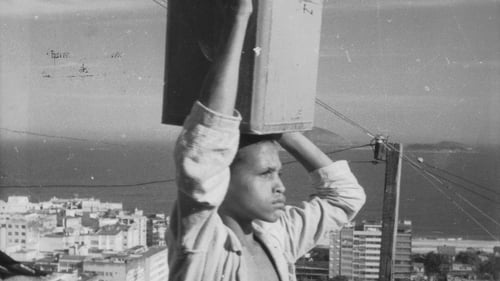
(segment "Escola de Samba Alegria de Viver")
Five segments about the hardships faced by people living in slums on hills in Rio de Janeiro.

Sound
Renato and Miro are black brothers raised by a white family in an old mansion in Rio de Janeiro. Renato, a graduated lawyer, has always looked for dignity, winning in life due to his honesty and search for social recognition. His brother, on the contrary, is a rebel small time crook who believes his behavior is the product of the treatment he received while being rased by the whites.

Sound

Sound
A Brazilian musical comedy



















